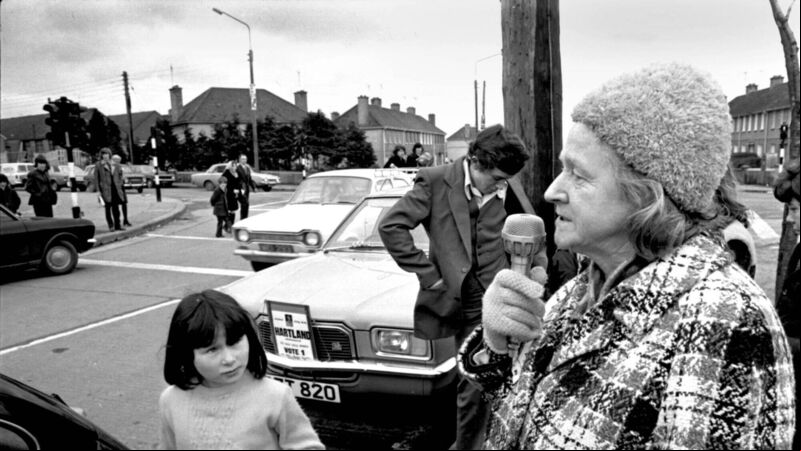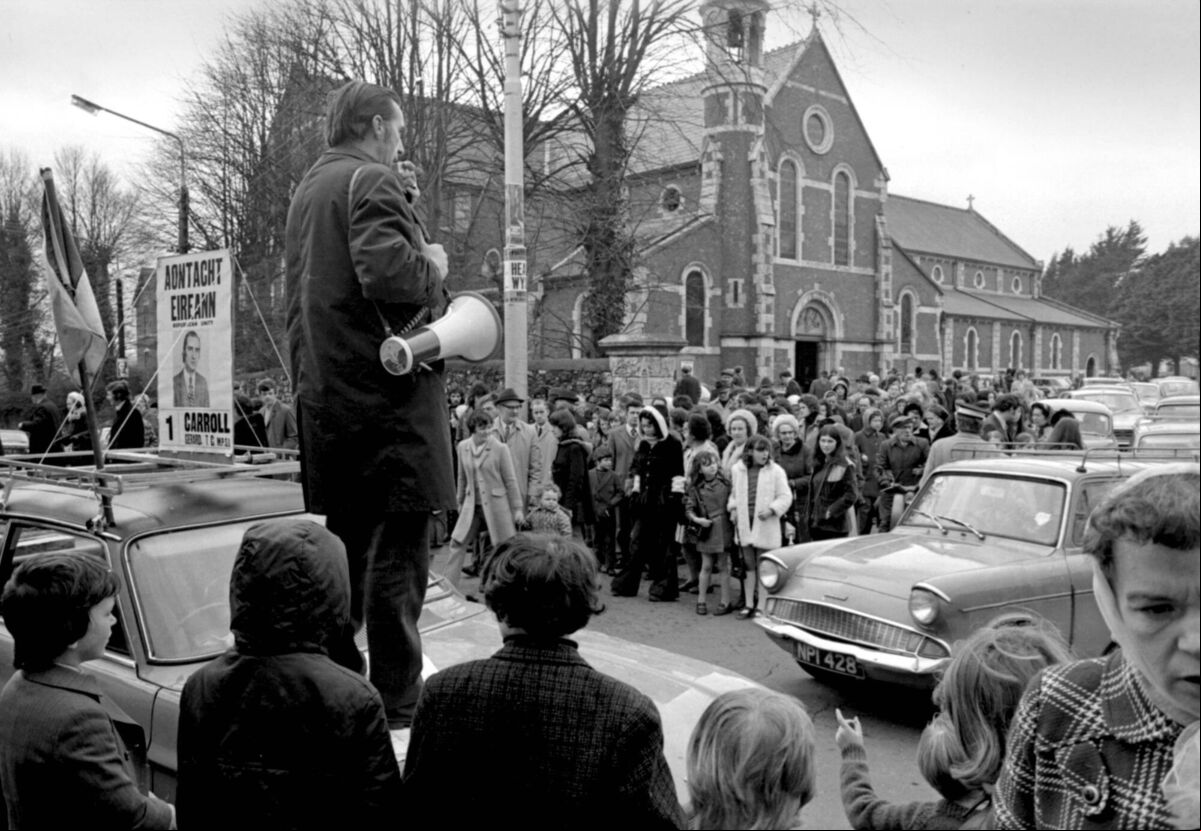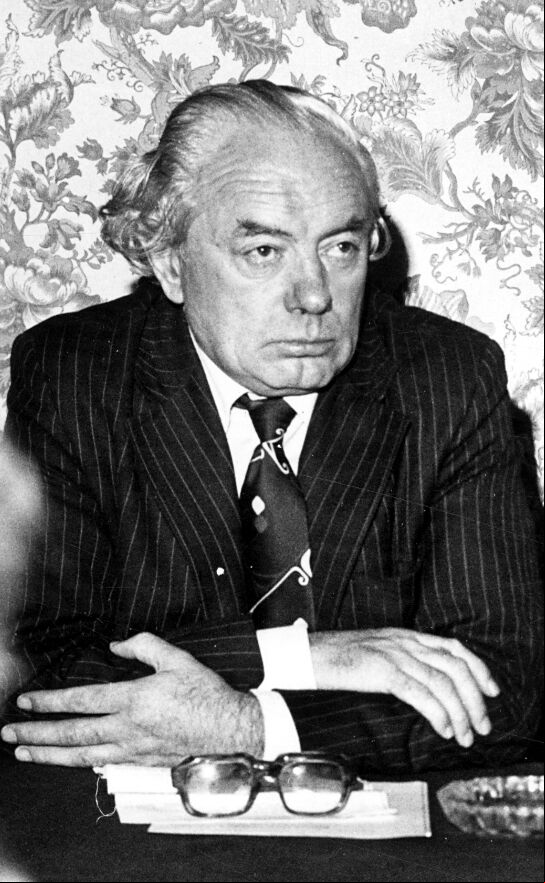Nostalgia: Pre-election pact helped Fianna Fáil be ousted after 16 years

Independent candidate Veronica Hartland campaigns at Ballyphehane, Cork 18/2/1973.



Independent candidate Veronica Hartland campaigns at Ballyphehane, Cork 18/2/1973.
“Today the people make their choice” proclaimed the front page of the Evening Echo on election day, Wednesday, February 28, 1973.
The polls had been open since 9am as the nation turned out to elect the 20th Dáil, and while the final results were not expected until Friday morning, the paper predicted that the outcome would probably be available by Thursday evening.
“After one of the hardest-fought campaigns of recent years – in which prices, rates, social welfare, jobs and national security were the main issues – a close result is expected,” ran our lead story.
“It could hinge, in fact, on one or two seats in which case the country might be biting its nails until late on Friday before knowing whether Fianna Fáil or the Coalition will form the next Government.”
With 144 seats in Dáil Éireann and 73 seats needed for a majority, the outgoing Taoiseach, Cork’s Jack Lynch, had 75 seats and he hoped to repeat the victory he had secured in the 1969 election.
The National Coalition, as it was known, of Fine Gael and the Labour Party, had, for the first time in 16 years, fought the election together in a pre-election pact.

Fianna Fáil had been in office since 1957, and had won the subsequent three elections, which occurred in 1961, 1965 and 1969, with Seán Lemass replacing Éamon de Valera as party leader and Taoiseach in 1959 when Dev was elected president, and Jack Lynch taking over in 1966.
“Both the Taoiseach, Mr Lynch, and the leader of Fine Gael and alternative Taoiseach, Mr Cosgrave, were out early in Dublin to cast their votes,” we reported.
“Accompanied by Mrs Lynch, the Taoiseach travelled to Rathgar National School, near where he resides, shortly after 9 o’clock, while Mr and Mrs Cosgrave exercised the franchise at Ballyroane National School, Rathfarnham, at about 9.15.”
The next day, the Evening Echo headline read: “The national jury is out”.
There were some straws in the wind, though. “Labour fare badly in Cork”, we reported, with early indications suggesting “a slight swing in favour of Fianna Fáil in both Cork city constituencies”.
However, across the page, another headline read: “Strong vote for Labour in Mid Cork”, as Labour’s Eileen Desmond, who would later serve as minister for health and social welfare from 1981 to 1982, only the third woman to serve in Cabinet, was on course to top the poll in Macroom. In Fermoy, Fine Gael’s Dick Barry was said to have polled well, and in East Cork Fianna Fáil’s Liam Ahern was going well, while in Mallow, outgoing defence minister Jerry Cronin looked likely to top the poll.
In the end, although Fianna Fáil actually increased its share of the vote, it lost six seats, leaving it with 69 seats, and Jack Lynch, reading the transfer tealeaves before the final seats were declared, became, in an interview with RTÉ’s Brian Farrell, the first Taoiseach to concede defeat live on television.

Fine Gael gained four seats, leaving it with 54, and Labour gained one, giving it 19 seats, leaving the National Coalition with a combined total of 73, a bare majority.
“The outgoing Taoiseach, Mr Lynch, after conceding defeat this morning, said he would be glad to have early discussions with Mr Cosgrave to bring him up to date on the Government’s dealings with Britain on the question of Northern Ireland,” we reported on Friday, March 2.
The 20th Dáil met on Sunday, March 4, to nominate Liam Cosgrave as the new Taoiseach, and he was duly appointed by President de Valera, who was by then 90 and three months from retirement. With Labour leader Brendan Corish as Tánaiste, the Cosgrave government would be nicknamed “the cabinet of all the talents”.
For Cork’s “Real Taoiseach”, it would be four long years before he would lead Fianna Fáil into a general election, for what would turn out to be his final time.
Keep up-to-date with the top stories in Cork with our daily newsletter straight to your inbox.
Please click here for our privacy statement.
25 seconds ago
Bere Island Project Group under threat due to lack of funding4 hours ago
Cork v Limerick: Three reasons the Rebels are Munster champions4 hours ago
Cork hurling fans kept the faith and this team delivered a Munster title victory for the ages2 minutes ago
Cork v Limerick: Rebels triumph on penalties to take Munster titleHave you ed your FREE  App?
App?

It's all about Cork!
7 hours ago
Carer who died in house fire was a 'son, brother, partner, friend and rock'7 hours ago
Principal says sudden deportation of two pupils felt like a death in Dublin school8 hours ago
Man who attacked victim after being invited to house for food jailed for six years8 hours ago
'Putin shouldn't have a veto': TD says triple lock debate must avoid misinformationAdd Echolive.ie to your home screen - easy access to Cork news, views, sport and more